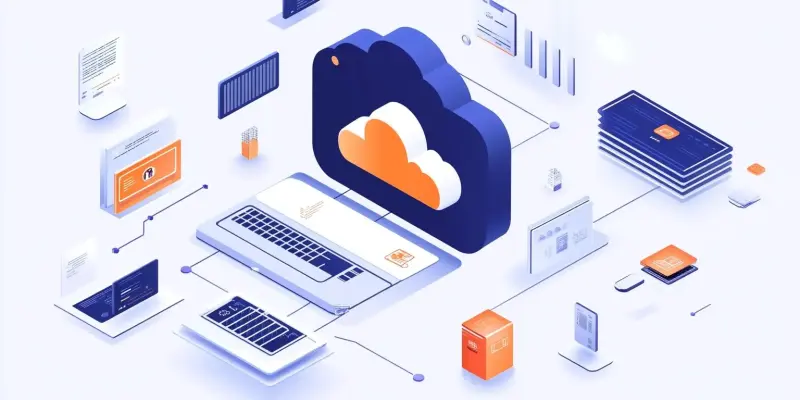Amid recent claims of a substantial breach in Oracle Cloud, the cybersecurity community is responding with heightened alertness and precautionary measures. A reported data heist allegedly exposed 6 million data records, including user credentials for 140,000 customers. Despite Oracle’s initial denial of such an attack, the company has maintained a notable silence, while security researchers compile evidence supporting these claims. The nature of this breach, if true, could significantly impact a vast number of organizations reliant on Oracle Cloud’s services, potentially causing widespread disruption.
Evidence and Expert Analysis
Information security firms like Rapid7, CloudSEK, Palo Alto Networks, and Orca Security have moved quickly to mitigate potential impacts on their systems and those of their clients. Although Oracle has not acknowledged the breach, these firms are advising customers to bolster their network defenses and rotate their credentials for Oracle Cloud accounts. Rapid7, which uses Oracle Cloud primarily for testing, reported no evidence of compromise but is still taking precautionary measures. Brian Bartholomew, Rapid7’s security chief, emphasized the importance of proactive measures to ensure test environments remain secure and free from breaches.
CloudSEK researchers, armed with clear indications of a critical vulnerability in Oracle Cloud’s login endpoint, suggested that the breach might have involved the exploitation of CVE-2021-35587 in Oracle Access Manager. This vulnerability, if exploited, would allow malicious actors to gain unauthorized access to sensitive data. The researchers’ accumulated evidence supports the theory that the hacker exploited this vulnerability, highlighting the severity of the situation.
Meanwhile, Palo Alto Networks has been closely monitoring the evolving scenario and, while refraining from specific comments on other firms’ cases, has issued general advisories recommending that affected organizations rotate their Oracle Cloud credentials. This step is part of a broader strategy to limit potential exposures and safeguard assets during this uncertain period.
Industry Response and Recommendations
Orca Security initially approached the breach claims with skepticism. However, as evidence grew and the risk assessment evolved, the firm acknowledged the high stakes and began advising clients to implement immediate defensive actions. This shift underscores the seriousness of the potential threat and the need for prompt and effective countermeasures. Orca Security’s change in stance reflects a broader industry trend of prioritizing risk mitigation and precaution in the face of evolving cybersecurity threats.
The prevailing trend among these cybersecurity firms emphasizes the need for precautionary measures, such as credential rotation and heightened awareness. This collective cautious approach seeks to counteract potential threats and safeguard sensitive data. Notably, this consensus has emerged despite the absence of formal confirmation from Oracle or specific guidance from government agencies, reflecting the prominence of independent expertise within the cybersecurity community.
The rapid and unified response of security firms underscores a shared commitment to protecting digital assets and minimizing disruptions that may arise from potential security breaches. By prioritizing proactive measures, these firms aim to ensure the integrity of their systems and the security of their clients’ data. The breadth and depth of these actions signify a concerted effort to address the vulnerability and reinforce the resilience of the global cybersecurity infrastructure.
A Proactive Approach to Uncertainty
The cybersecurity community’s call for precautionary actions, particularly credential rotation and network fortification, showcases a commitment to mitigating risks and protecting sensitive information. This approach underscores the importance of readiness and vigilance in the face of potential cyber threats. Cybersecurity firms continue to advocate for adaptive and preventive measures while awaiting further information and official statements from Oracle regarding the alleged breach.
The consensus among experts highlights an urgent need to address potential security lapses and safeguard critical data systems effectively. By adopting a unified stance on precautionary measures, the cybersecurity community aims to minimize potential risks and avoid the far-reaching consequences that could result from such a breach.
In the interim, organizations are advised to remain vigilant, review their security protocols, and stay updated with the latest protective measures. As the situation develops, maintaining robust security postures and proactive measures will be crucial in defending against potential threats and ensuring the continuous protection of digital assets globally.
Looking Ahead: Fortifying Cyber Defenses
The cybersecurity community is on high alert following recent allegations of a significant security breach in Oracle Cloud. Reports suggest that a hacker accessed 6 million data records and user credentials belonging to 140,000 customers. While Oracle initially denied these claims, the company has since remained unusually silent about the issue. Meanwhile, security researchers are gathering evidence to support the claims of the breach. If confirmed, such a breach could severely impact many organizations that depend on Oracle Cloud’s services, leading to widespread disruption. The potential fallout from compromised data could include everything from operational downtime to financial losses and damage to reputations. Companies relying on Oracle services are being urged to enact further protective measures to safeguard their data. This incident underscores the critical importance of robust cybersecurity practices and the dire consequences that can ensue when these safeguards fail.

